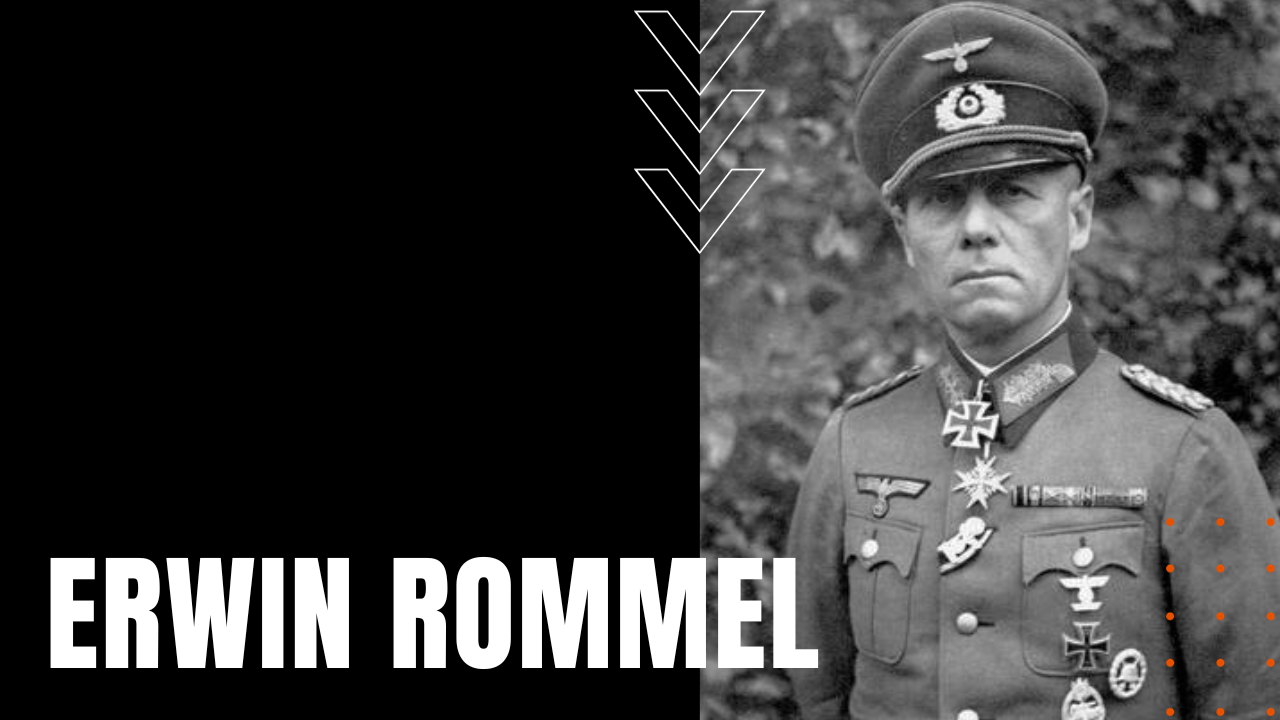Erwin Rommel

Born in 1891 Heidenheim Germany, after young Erwin Rommel displayed little interest in academics, his parents urged him to pursue a military career, joining a German infantry Regiment at 18 years of age. Distinguishing himself in World War One Romania, France and Italy, Rommel was promoted to captain late in 1918, shortly before Armistice Day and the end of The Great War. During the interwar years, Rommel became a popular instructor at the German War Academy in Potsdam, meeting then führer Adolph Hitler in 1934, who appointed Rommel as a liaison officer to his growing Hitler Youth organization, before leading Hitler’s personal escort battalion.
Fast Promotions
Promoted to major general after the Nazi’s 1939 blitzkrieg invasion of Poland, Rommel’s destiny was set to become a vital part of the Nazi’s high command. Leading one of ten tank divisions during the May 10th, 1940 blitzkrieg invasion of Belgium and France, Rommel’s impressive speed combined with his insistence on leading from the front instead of the rear, prompting Hitler to appoint Rommel as commander of the Afrika Korps, with orders to support struggling Italian forces in Hitler’s North Africa campaign.
Desert Fox
Arriving in Africa in February of 1941, Rommel scored early victories against the British at Tobruk, before defeating the British at the Battle of Gazala in June of 1942, at the same time drawing awe and respect from Allied and German forces alike, which earned him his nickname, the Desert Fox. After the tide would turn against the Germans in late 1942, Hitler ordered Rommel back to Europe in March of 1943, after promoting him to the rank of field marshal over the European Theater of War. Commanding forces first in Italy and then in northern France, Rommel worked to fortify Hitler’s Atlantic Wall Defenses.
Rising Disillusionment
After the Allie’s D-Day invasion of Normandy—where Rommel was seriously wounded by British fighter-bombers on July 17th, 1944—Rommel became increasingly disillusioned with Hitler’s now erratic leadership, and although most historians find no proof of Rommel’s involvement with the July 20 plot to assassinate the führer, a Nazi investigation pointed the finger at Rommel, as one of hundreds of conspirators involved in the plot. Due to Rommel’s popularity among the German people, he was given the choice to stand trial or commit suicide in an effort to spare his family. Opting for the later on October 14th, the Nazi’s honored him with a state funeral, making Erwin Rommel, an important ringmaster in the Nazi’s high command.
